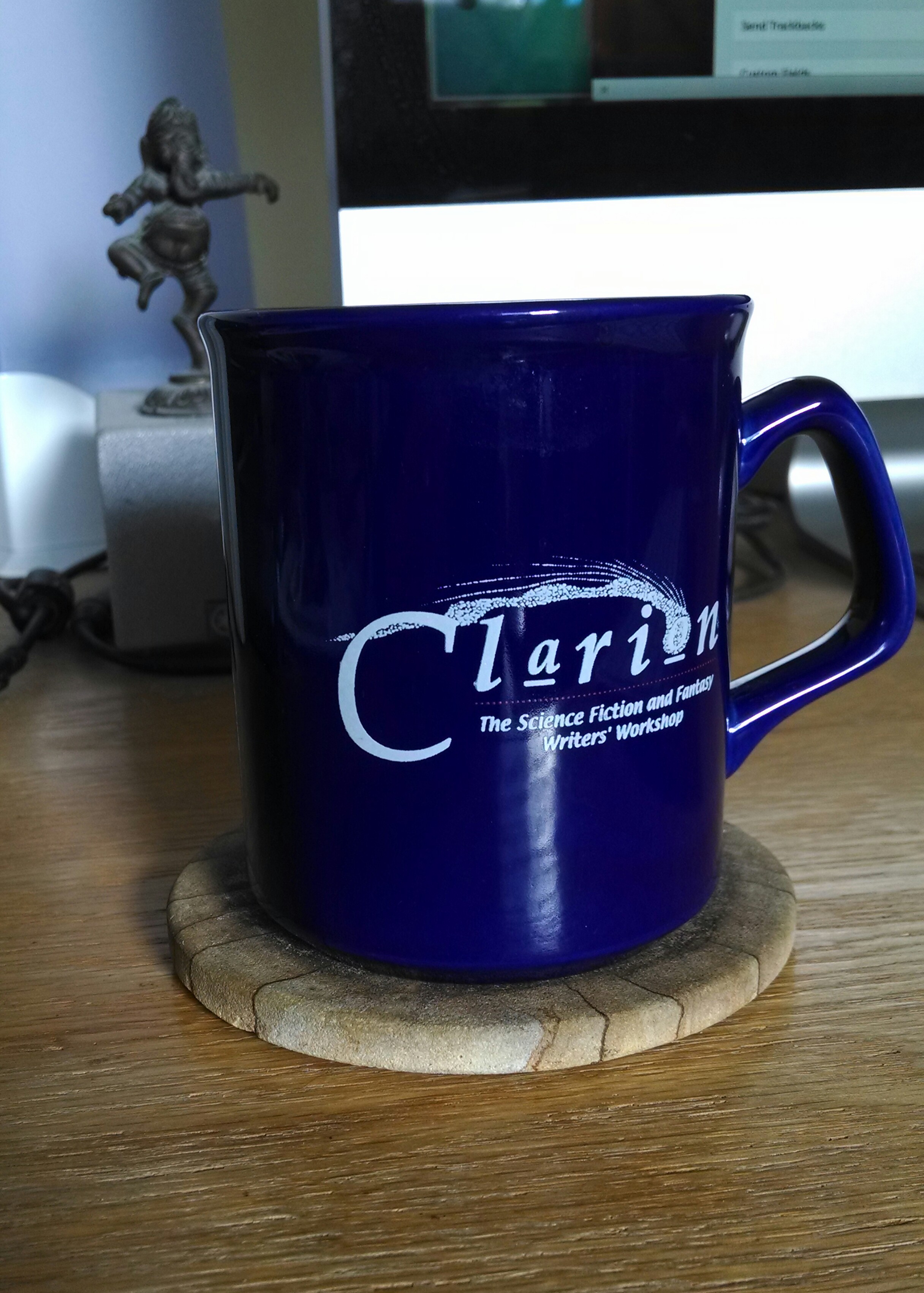I’ve lost a good bit of weight over the past 18 months. I haven’t talked about it much here. It’s bad enough when this starts seeming like an exercise blog; it will not become a weight-loss blog.
That’s partly because the topic is so loaded with cultural baggage. I think there’s pretty good evidence that eating a healthy diet and getting plenty of exercise are both associated with better health. There’s a lot less evidence that being thin is associated with better health—and none at all, as far as I’m aware, that trying to lose weight improves your health, or that exhorting someone else to lose weight improves their health.
Having said all that, my weight is something I’ve been paying attention to, so it seems like something I should talk about here.
What prompts this post at this time is that I’ve reached my lowest adult weight. That is, at 179 pounds this morning, I’ve matched the lowest weight for which I have any record.
I have pretty good data on my weight since 1999. For Christmas that year my brother gave me a Palm III and I installed a weight-tracking app called Eat Watch, which I used fairly regularly from early 2000 until mid 2007. At that point there’s a break in the data, because I lost access to the good doctor’s scale at the Motorola office when the site closed. My bathroom scale wasn’t up to the task. In May of last year I finally bought a good digital scale, and since then I have almost daily data.
Although I’ve been heavier than I’d like pretty much my whole adult life, and have often paid attention to my weight, I’ve largely avoided the curse of yo-yo dieting. Really, there are only two other periods when I’ve lost weight.
The previous one began in 2003. Early that year blood work showed modestly elevated blood sugar levels. The idea that I might break my pancreas was upsetting enough that I took steps: I quit drinking soda and I started running again. From February 2003 through September 2004 I lost 40 pounds, getting my weight down to 188. I kept the weight off for a while; at the end of 2005 it was still around 195, but it was already inexorably rising. By the time the Motorola site closed, it was back up over 200 pounds.
I don’t have much data on my weight from before 2000, but the one exception includes the other period I was losing weight. Back in 1991 I started running, and my running log from that period tracked my weight. I don’t have a value for every week, but I weighed 201 in March that year, and got my weight down to 179 by the end of running season.
In my experience, losing weight is either easy, or else impossible. The easy times are generally summer, when I’m getting plenty of exercise. I’ve tended to blame difficulty in getting exercise for the fact that I gain weight in the winter, but I don’t really have data to show that. It could be other things. Maybe in the dark months I burn fewer calories on incidental movement, such as by fidgeting less. Maybe in the dark months I eat more.
It would only have to be slightly more. One thing the data does make clear is just how few calories it takes to make a large difference. Since May of last year I’ve lost 26 pounds. That corresponds to a daily deficit of just 134 calories. Any little thing—an extra soda, an extra cocktail, an extra beer, an extra snack, an extra serving—would have more than wiped out the deficit. An almost imperceptible change in my amount of fidgeting could easily add or subtract more than 134 calories per day.
It’s pretty much impossible to impose that difference by effort, which is, I think, why diets don’t work. There are extremely complex mechanisms in your body for controlling your weight, which bring to bear powerful forces like appetite and satiety. Making a point of eating less is no more likely to be successful than making a point of breathing less. Losing weight requires changing how you live.
Changes like eating a healthier diet and being less sedentary are likely to lead to weight loss. I used to despair of making such changes. Eating more healthily is tough because (unlike Jackie), I don’t really like vegetables. Being less sedentary was tough because so many hours per day had to be allocated to sedentary activities—sleeping and working.
I’ve improved my diet some. Over the past 20-some years I’ve steadily cut back on the amount of fat and sugar I eat. I’ve also learned to pay more attention to how much food I really want, which lets me get those complex mechanisms for controlling my weight working for me, rather than against me.
Not working at a regular job has helped with being less sedentary—more of my hours are my own. I’ve also made a bit of an attitude adjustment: Before I thought that an hour a day was probably more time than I could afford to devote to exercise; now I figure that 23 hours a day is too much time to spend being sedentary.
Last winter I described a fitness regimen that allowed me to maintain a stable weight. Briefly: Three times a week we lift weights and then do an hour of taiji; the other four days a week I try to walk for an hour. It worked. My weight was stable. (Specifically, from the beginning of September last year though the end of March this year I lost weight at the rate of 0.03 pounds a week, implying a calorie deficit of 17 calories a day. And that right there is a crystal-clear instance of those powerful mechanisms working. Imagine trying to match your calorie intake and activity level within 17 calories by counting calories. It’d be hopeless.)
Maintaining a stable weight over the winter was key. It was perfectly ordinary that I lost weight last summer and this summer. What was different was that I put two summers of weight loss back-to-back.
That’s pretty much the extent of my plan for the rest of this winter as well—a stable weight, so that I’ll be starting from here next summer.
I don’t have much data on which to base a longer-term plan. The National Institutes of Health suggest that the highest healthy weight for a person my height is 164 pounds. That seems like a good medium-term goal.
Looking slightly beyond that, I observe that Jackie is looking very trim these days. To match her body mass index my weight would want to be around 144-151.
That target is supported by my only reasonably specific recollection of my weight from longer ago: When I was a freshman in college, I got mononucleosis. The combination of nausea and a very sore throat resulted in eating a lot less for several weeks, producing considerable weight loss. I don’t have any records, but I’m pretty sure I remember my weight dropping under 150 (which is to say, probably down to 149¾). Despite having gotten there by being sick, I was by no means wasted away at that weight. In fact, I remember looking pretty good.
So, that’s my weight loss story. I don’t expect to talk about it much beyond this. “Let me tell you how I lost so much weight” is just not a useful or interesting story. I only mention it at all because I’ve been paying close attention to it. It would seem to make my own story incomplete to leave it out.



